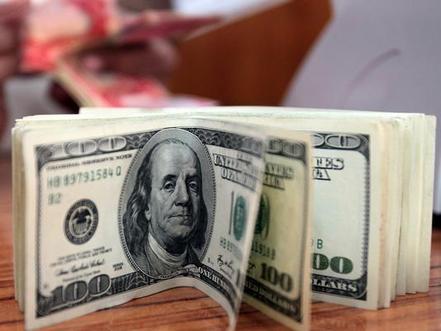UN suspends USD aid to Syrian refugees in Lebanon after uproar

The U.N. on Saturday announced the suspension of a decision to disburse U.S. dollar cash assistance to Syrian refugees in Lebanon, after the move created an uproar in the country.
“As a result of meetings held yesterday with the Caretaker Prime Minister, H.E. Najib Mikati, and Caretaker Minister of Social Affairs, H.E. Hector Hajjar, and based on their requests, a decision has been made to temporarily pause the use of dual currency for next month's disbursement of cash assistance to refugees, while discussions continue on appropriate modalities,” a U.N. statement said.
“The United Nations reiterates its commitment to humanitarian principles in supporting the Government to assist the most vulnerable people across Lebanon. All programmatic decisions are taken with full transparency and commitment to our mandate including decisions on assistance modalities which are based on solid, objective evidence and thorough research,” the statement said.
“We continue to stand with the people and Government of Lebanon during these difficult times and foster a collaborative environment to reach those most in need, including refugees,” the statement added.
Some Lebanese officials, observers and citizens have argued that granting U.S. dollar assistance to Syrian refugees would encourage them to stay in Lebanon.
Lebanese authorities have recently started cracking down on Syrian refugees against the backdrop of a worsening economic crisis and political stalemate, an escalation that has caused a panic among Syrians in the country.
Government officials have given varying estimates of the number of Syrians in the country, ranging from 1.5 million to more than 2 million. Lebanon is believed to have a population of around 5 million to 5.5 million citizens, but no census has been held for nearly a century.
Since Lebanon’s economic meltdown began in 2019, officials have increasingly called for a mass return of Syrians, saying they are a burden on the country’s scarce resources and that much of Syria is now safe. The rhetoric has grown increasingly heated; a federation of trade unions recently declared a “National Campaign to Liberate Lebanon from the Syrian Demographic Occupation.”
In recent interviews with local media, Minister Hajjar claimed that refugees make up 40% of Lebanon’s population, which “no country in the world would accept.”
The United States, one of the Lebanese Army's largest donors, has expressed concerns about refugee deportations to Lebanese officials. Refugee returns should be “voluntary, safe, and dignified,” a U.S. Embassy spokesperson said.
Saturday’s U.N. statement was issued by U.N. Resident Coordinator and Humanitarian Coordinator for Lebanon Imran Riza, the U.N. High Commissioner for Refugees Representative in Lebanon Ivo Freijsen, and the World Food Program Country Director and Representative in Lebanon Abdallah Alwardat.



